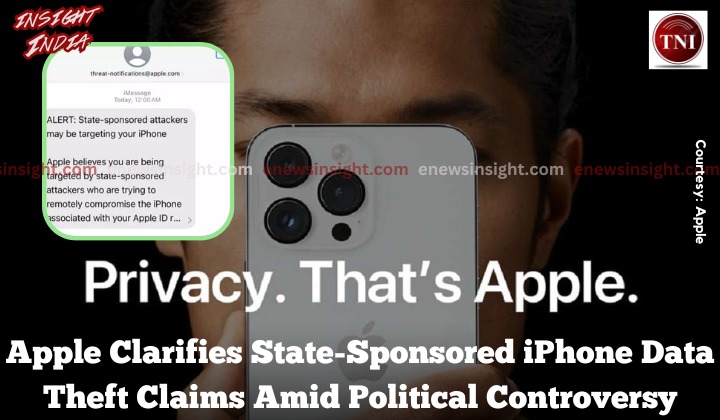In a rapidly evolving political drama, Apple has issued a statement addressing the controversy surrounding alleged state-sponsored attacks on the iPhones of Opposition Members of Parliament (MPs) in India. The government has also initiated an investigation into these claims made by Opposition MPs, with the situation escalating into a high-stakes political standoff.
The controversy began when several prominent Opposition MPs, including Shiv Sena (UBT) MP Priyanka Chaturvedi and TMC MP Mahua Moitra, reported receiving notifications on their iPhones warning them of potential “state-sponsored attackers.” These alerts sent shockwaves through the political landscape, igniting suspicions and allegations.
One of the key figures in the political fray, Congress leader Rahul Gandhi, alleged that these alerts were somehow linked to their criticisms of industrialist Gautam Adani. During a press conference, Gandhi claimed, “As soon as Adani is touched, intelligence agencies, snooping are deployed.” He further asserted that party leaders like K C Venugopal, Pawan Khera, and several other opposition leaders had also received these alarming notifications.
Rahul Gandhi’s comments took an intriguing turn when he suggested a shift in the power hierarchy within India, stating, “…Earlier, I used to think number 1 is PM Modi, number 2 is Adani and number 3 is Amit Shah, but this is wrong, number 1 is Adani, number 2 is PM Modi, and number 3 is Amit Shah. We have understood the politics of India, and now Adani ji cannot escape. Distraction politics is going on.”
Support Independent Journalism? Keep us live.
Amid the political storm, Apple felt compelled to address the controversy by issuing a statement clarifying the nature of the threat notifications. In their statement, the tech giant emphasized, “Apple does not attribute the threat notifications to any specific state-sponsored attacker.” They went on to explain that state-sponsored attackers are typically well-funded and sophisticated, with attacks that evolve over time. Detecting such attacks relies on threat intelligence signals that can sometimes be imperfect and incomplete, leading to potential false alarms or undetected attacks.
Furthermore, Apple expressed its inability to provide specific information about what triggers these threat notifications, citing the risk of aiding state-sponsored attackers in adapting their tactics to evade detection in the future. The company also disclosed that since enabling the Threat Notifications feature, they have sent such notifications to individuals in nearly 150 countries worldwide.
The government has ordered an investigation into these allegations, seeking to determine the legitimacy of the claims made by the Opposition MPs and the extent of any potential security breaches.
As this intriguing political controversy unfolds, the nation will be closely watching for further developments and revelations concerning the alleged state-sponsored iPhone data theft attempts and the responses from both the government and Apple.


Comments are closed.